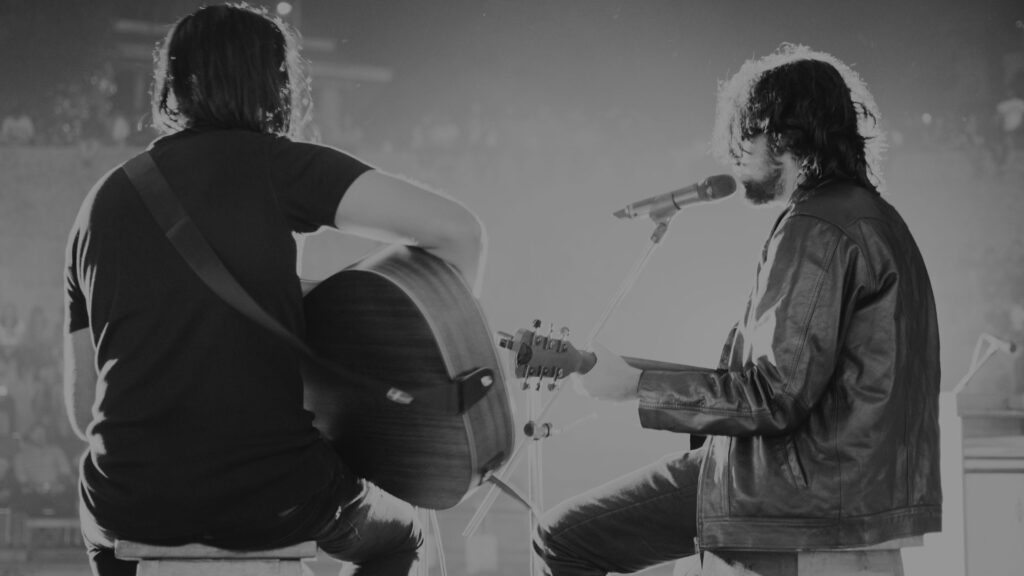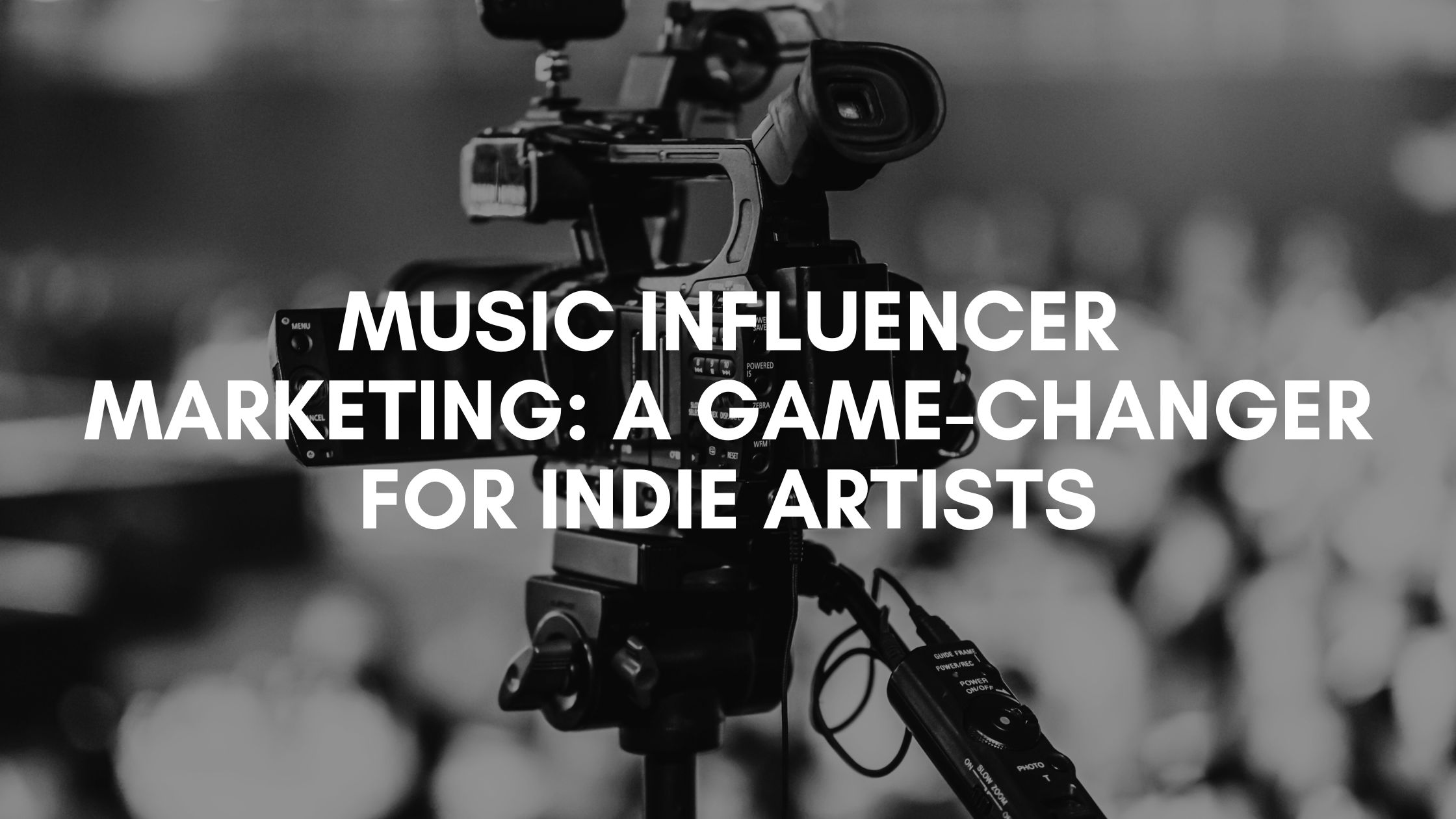|
Listen to the article
Getting your Trinity Audio player ready...
|
Table of Contents
- What Is Music Influencer Marketing?
- Why Is Influencer Marketing So Effective for Musicians?
- Getting Started with Influencer Music Marketing
- Best Practices for Successful Collaborations
- A wrap 🌯
In today’s digital landscape, where thousands of songs are uploaded daily across streaming platforms, standing out from the crowd is one of the biggest challenges indie artists face. Traditional methods of promotion, like radio play or major label backing, aren’t always accessible to independent musicians. However, music influencer marketing has emerged as an innovative and cost-effective way to reach a targeted audience, allowing artists to connect with fans, gain visibility, and ultimately grow their careers.
This article will dive deep into the world of music influencer marketing, exploring why it’s crucial for indie artists, how to get started, and the best practices for working with influencers to make your music heard.
What Is Music Influencer Marketing?
At its core, music influencer marketing involves collaborating with social media influencers who have a dedicated following, particularly within your genre or niche. These influencers—whether they’re on Instagram, TikTok, YouTube, or other platforms—can expose your music to their audience, driving engagement, streams, and social sharing.
Influencers range from massive, celebrity-status figures to micro and nano-influencers who have smaller but highly engaged fan bases. For indie artists, these micro-influencers are often more affordable and accessible, offering an authentic way to get their music in front of new listeners.
Why Is Influencer Marketing So Effective for Musicians?
With traditional forms of advertising often falling short in the age of ad blockers and short attention spans, music influencer marketing provides a fresh, authentic way to promote music. Fans trust influencers they follow, and a genuine recommendation from a music influencer can hold much more weight than a generic ad or press release. Here’s why it works so well:
- Authenticity and Trust: Followers feel a personal connection with influencers, making them more likely to engage with and trust their recommendations. When an influencer shares your music, it comes off as a personal suggestion rather than a marketing ploy.
- Targeted Reach: Influencers often serve niche communities. Whether you’re making lo-fi beats, indie rock, or experimental electronic music, there’s likely an influencer whose audience aligns with your target demographic.
- Viral Potential: Platforms like TikTok and Instagram are built for viral moments. A simple video featuring your song could reach thousands—or even millions—of users overnight.
Getting Started with Influencer Music Marketing
Before diving into influencer marketing, it’s essential to have a strategy in place. Here are the key steps to take:
1. Define Your Goals
Start by outlining what you hope to achieve. Are you looking to increase streams on Spotify? Boost your followers on social media? Or maybe you’re hoping to promote an upcoming album release or tour. Clear goals will help you measure the success of your campaign and choose the right influencers to work with.
2. Identify the Right Influencers
Finding influencers who align with your brand and music style is crucial. Tools like Social Blade or modash.io can help you track down influencers that fit your criteria. When selecting influencers, consider:
- Engagement Rates: Look beyond the number of followers—focus on likes, comments, shares, and interactions. An influencer with 10,000 engaged followers may be more impactful than one with 100,000 passive fans.
- Content Style: Does the influencer’s content match your music vibe? For instance, if you make chill acoustic music, an influencer who posts nature photography or coffeehouse playlists might be a great fit.
- Platform Preferences: TikTok, Instagram, and YouTube each have different strengths for music promotion. TikTok is fantastic for short, viral clips, while YouTube is better for in-depth reviews or music video features.
3. Create a Budget
Influencers often have different pricing structures based on their follower count, engagement rates, and the type of content they create. Establish a budget before reaching out, and be open to negotiation. Micro-influencers may offer more flexibility, especially if they genuinely love your music.
4. Craft Your Pitch
When reaching out to influencers, a personalized message goes a long way. Instead of sending a mass email, take the time to explain why you think their audience would love your music. Make your pitch short, clear, and compelling—mention your music style, achievements, and specific ways they could collaborate with you (e.g., a song feature, playlist inclusion, or branded post).

Best Practices for Successful Collaborations
Once you’ve identified influencers and secured collaborations, there are several key things to keep in mind to ensure the success of your music influencer marketing campaign:
1. Be Authentic
It’s essential that influencer collaborations feel natural. Avoid overly scripted posts or inauthentic shoutouts that might turn off their followers. Let influencers use your music in a way that fits their personal style—this will resonate better with their audience and come across as more genuine.
2. Provide Clear Guidelines
While authenticity is key, offering influencers some creative direction ensures your message isn’t lost. Provide a few ideas or themes to guide their content creation. For example, if you’re releasing a summer single, you could suggest that they use your track in a sun-soaked outdoor video or a festival montage.
3. Leverage the Power of Hashtags
Influencers often know their way around social media trends, but it doesn’t hurt to suggest relevant hashtags that can increase the visibility of your collaboration. Hashtags like #NewMusicFriday, #IndieArtist, or even a branded hashtag around your release can amplify the reach.
4. Track Your Results
Measure the success of your campaign by tracking metrics like follower growth, social media mentions, and most importantly, the increase in streams or downloads of your music. This data will not only show you if the influencer partnership was successful but also guide future marketing efforts.
A wrap 🌯
Music influencer marketing is an effective tool for indie artists looking to gain exposure in a crowded industry. It provides an opportunity to authentically connect with listeners, boost engagement, and increase streams without the need for massive budgets or major-label backing. By targeting the right influencers, setting clear goals, and fostering genuine collaborations, indie artists can take full advantage of this powerful strategy to grow their fanbase and reach new heights in their musical careers.
If you’re an independent artist or a music marketer, now’s the time to explore influencer marketing as a part of your overall strategy. With the right approach, you could be one collaboration away from your next big break.


